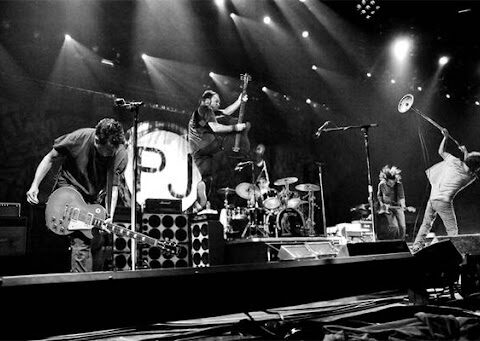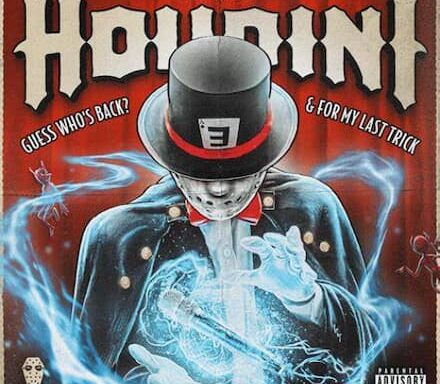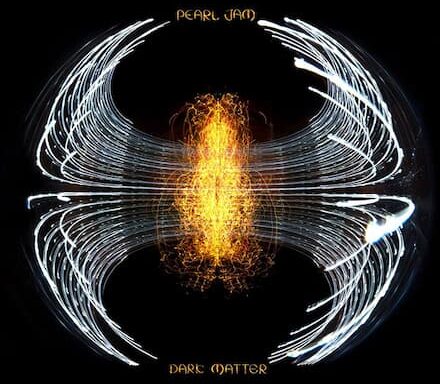So, I went back and forth for a few days on whether to even bother writing this article.
Having already written about Kurt Cobain here at length on a number of previous occasions, I didn’t know if there was anything left worth saying.
Among these older pieces, five years ago – on the twentieth anniversary of his death – I wrote a very long piece about that day and its impact both on me personally and those generations culturally. Around the same time, I also wrote this piece on how I viewed Cobain’s real ‘legacy’ and long-lasting impact.
The former was more of a snapshot of a moment in time and that moment’s resonance; while the latter was an attempt to bypass all of the accumulated bullshit around Kurt Cobain that has developed over the years and to somewhat simplify and purify his impact and legacy.
So I don’t know that I have anything to say about Cobain that I hadn’t already expressed.
But then I started thinking again about stuff that’s been added to the Cobain ‘mythology’ in the time even since then. Stuff like the Montage of Heck movie, for example, the Soaked in Bleach movie, and the flood of Murder Theory videos and supporters of those theories.
I have to say too that the suicide of Soundgarden legend Chris Cornell less than two years ago also didn’t just emotionally traumatise me in itself, but it also reopened a lot of the psychological impact from Kurt’s death in 1994. Cornell, like Cobain, had been one of my three or four musical and cultural heroes – and his apparent suicide at 52, so long after Cobain’s at 27, felt like a really jarring and unsettling resonance between two horror stories so far apart in time but so close together in cultural terms.
Cobain and Cornell weren’t just linked culturally or in terms of the music scene they came from, but were friends with interconnecting stories.

And, in both cases, I had felt a level of connection or attachment to them that was about as strong as it could be when it comes to having strong feelings about someone you’ve never met and don’t know personally.
That sort of thing has always been curious to me in itself – but that’s a whole other matter.
What’s curious is how much ‘mythology’ has been added to the person of Kurt Cobain in the twenty-five years since his death.
This is something that’s only really noticeable to people who were around in Cobain’s lifetime or who remember Cobain and Nirvana from when they were still active – and who remember the event of Kurt’s death and its immediate aftermath (something I covered at length in this much older piece in April 2014). People who weren’t born yet or who have only retroactively become Nirvana or Cobain fans can only ever know the ‘deified’ or heavily mythologised icon of Cobain, and all the inherited baggage that comes along with that.
More: ‘Remembering April 5th 1994: From Then to Now‘…
It’s sometimes weird to me how Cobain is seen by different people now. Some of this is informed by things like certain films or books (which I’ll get to shortly): but a lot of it is just in the years of accumulated myth and sheer volume of material ‘analyising’ Cobain.
It’s extraordinary how much material is out there ‘analyising’ Kurt Cobain, not really as a musician or artist – but as a ‘personality’ or his psychology. It’s almost at the level of the kind of analysis you find of famous serial killers.
I’ve always found it weird. But then some of this is influenced by things like the Cobain diaries being released as a product – something I’d always thought was in poor taste and should never have seen the light of day.
And that’s very much an indication of how much he has become public property. It made me uncomfortable that his private diaries and personal doodlings were put out there like that.
It kind of reminded me of how there was a point in time where there were t-shirts available that had bits of his suicide note printed on them. I mean that was some sick shit. Sicker even than the ‘Kurt Cobain Spirit Box’ videos or self-proclaimed ‘mediums’ claiming to have spoken to (or recorded) the ghost of Cobain: I don’t know why those videos keep cropping up on my timeline.
Something like the Montage of Heck movie plays into this somewhat too: a film that I found uncomfortable and questionable. I never actually saw the point of that high-proifile film or what it was trying to do. It seemed, again, to treat Cobain as a psychological study more than anything else: and, as with the release of his private journals, it felt deliberately invasive in some ways.
There’s also that other big, all-consuming thing that dominates the Cobain legacy in this day and age – the conspiracy dimension or the ‘Cobain Murder Theories’. Which is something I’ll circle back to at the end.
But it raises the question: who or what is Kurt Cobain now? Well, the answer of course is that he is different things to different people. But what’s the prevailing or dominant view – and how much does that reflect the genuine reality of the real person who died 25 years ago?
Some treat him almost as a god: as some kind of holy icon and barely even a human being. He would’ve hated that. Many have also co-opted his legacy, memory or image: such as that tacky weeping statue in Aberdeen (which I covered here at the time) and the museum – a town that he openly hated and resented now using his image and iconography to cement its only claim to fame (the Cornell statue has also appeared already; though is at least in better taste than Cobain’s).

Some, conversely, have totally turned against him – this being the too-cool-for-Nirvana crowd, who – bafflingly – have gone full circle and now come to the conclusion that Cobain and Nirvana are “overrated” or “not that good”.
The former crowd mostly consists of people who weren’t born yet when Nirvana were around and have become Cobain fans retroactively: they might not properly grasp how contrary to Cobain’s and Nirvana’s sensibilities the idea of hero worship or rock n’ roll deification was. One of the most endearing things about Cobain and Nirvana was in fact their rejection of rock n’ roll and the idea of stardom and their down-to-earth, goofy approach to the whole thing.
Watch any interviews of Cobain or Novoselic and you see this clearly: they regarded the whole thing as a farce and a joke, they didn’t take either themselves or their ‘careers’ or the industry seriously. They were incredibly down-to-earth, normal guys who had no real interest in being ‘rock n’ roll gods’.
The latter crowd, meanwhile, are idiots.
Said crowd consists of people who – almost without doubt – were really into Nirvana at one point (probably right after he died) and then later decided that Cobain and Nirvana had become so universally loved or talked about that it was no longer ‘cool’ to say you liked them. So now they say ‘Oh, we don’t like Nirvana anymore – overrated’.
It’s actually something Cobain himself would probably find really funny and ironic: because, even in the Nevermind days, he was already talking about hipsters and bandwagon-jumpers pretending to love his music and was already sceptical about much of his new-found mass audience.
I’ve argued with people who also say Cobain and Nirvana were way too big or ‘mainstream’, when other related bands – such as Alice in Chains or Pearl Jam – were much better and more ‘deserving’ of that level of fame. Which is stupid and actually pretty ignorant. Alice in Chains are huge. So are Pearl Jam. Pearl Jam were, commercially, probably even bigger than Nirvana in 1993 and 94.
Self-proclaimed armchair experts many years after the fact may indulge in these kinds of either/or mentalities where you either like this band or that band (but not both) or you put everything in terms of ‘versus’: but no one in those bands or in that music scene was ever doing that. Chris Cornell was a massive Nirvana fan. Kurt Cobain was a massive Soundgarden fan. Layne Staley was deeply affected by Kurt’s death. Eddie Vedder acknowledged a big debt to Cobain on the night Cobain’s death was announced.
All of these bands supported each other. And, in terms, of the commercial success of some of those acts – and the mainstream penetration issue – it was interrelated. Nirvana’s commercial breakthrough did a great deal to open the way for other bands, just as Soundgarden’s move to a major label had supposedly influenced Cobain’s decision to move Nirvana in that direction.
There was no ‘versus’. It’s all stupid shit that people have indulged in way after the fact. The only exception was Cobain’s dismissive attitude (at the time) towards Pearl Jam: which – and I say this as a lifelong Pearl Jam fan – entirely made sense from Cobain’s perspective.
To say that Nirvana or Cobain was ‘overrated’ is so badly missing the point (Nirvana didn’t even rate themselves very highly) that it really does cross into the realm of just stupidity. This was the subject of an entire article here, but Nirvana and Cobain did more than any other artist in history to create mass exposure and opportunity for other artists and bands by using their own success and profile to promote other people.
There’s never been any successful commercial artist that’s done that so purposefully as Nirvana and Cobain did.
And that’s just what they were consciously, openly doing: you also have to look at their impact in terms of their overall and general influence (in terms of their mainstream breakthrough) in turning millions of people onto music and artists that might otherwise never have had the chance to reach broader audiences (as well as in shifting the commercial music industries focus for a time towards seeking out and promoting those types of artists).

More: ‘This is the REAL Legacy of Kurt Cobain & Nirvana…‘
You could argue that Nirvana was overrated musically: but that’s just subjective. The reality is there can’t be many people who would – honestly and without artifice – dismiss Nirvana musically.
Either way, no one could – with a straight face – dismiss them or him culturally. And in terms of Nirvana having more media attention than some of their contempories or Cobain being a media circus, you have to bear in mind that (1) they consciously used that attention to promote and help as many other artists as possible, (2) Cobain barely lived for a mere three years as a ‘rock star’, and (3) he was 100% outspoken about absolutely hating that media attention and not wanting it.
Musically, even psychologically, there was nothing ‘mainstream’ about Nirvana. Ever. In Utero, as I argued here, remains the most non-commercial (in style and content) album ever to sit at No.1 on the album charts.
But what, again, of Cobain the person?
What was something like Montage of Heck trying to tell us? It seemed to be just an artsy-fartsy foray into a ‘damaged’ psyche or something like that. I covered this film somewhat here in an article about the Michael Jackson film Leaving Neverland: and talked about the Montage of Heck director Brett Morgen‘s explanation of how Montage of Heck was ’emotional filmmaking’ that wasn’t aiming for any kind of objective truth.
Which is fine as an artistic choice: no film is required to be objectively truthful, since film is an art-form and is about expression. That film was impressionistic, rather than specifically trying to tell us anything or make any kind of point.
But it did seem to take a decision to focus in on the idea of Cobain as a damaged personality or, again, a psychological study.
Kurt’s friend, the Melvins’ frontman Buzz Osbourne, personally penned a scathing review of Montage of Heck when it came out, calling it a ‘fiction’ that presented a fictional version or idea of the Kurt Cobain he had known.
Was Montage of Heck really released to deflect attention away from Soaked in Bleach, as Soaked in Bleach enthusiasts and Murder Theory supporters claim? Possibly. I don’t think Soaked in Bleach is entirely reliable either – it’s certainly heavily slanted and agenda-driven filmmaking in itself too. But it did seem like Montage of Heck was an emergency measure to overpower Soaked in Bleach: the latter portrays Cobain as a murder victim, while the former portrays him as a somewhat damaged individual destined to self-destruct.
And just in that alone you can see that there’s this tug-of-war going on between different positions in terms of controlling the ‘narrative’ or ‘legacy’ of Kurt Cobain.
I’m a fan of neither film. Kurt & Courtney was the first high-profile Cobain film: the 1997 Nick Broomfield film in fact could be credited with starting a lot of the conspiracy theory trend and the trend towards demonising Courtney Love. I actually think Broomfield’s film was very honest and balanced: though it has to be said that the testimony of various questionable individuals is not enough to constitute a decisive argument in whichever direction (and in Broomfield’s defense, he never claimed it was).
Certainly, however, Courtney has done herself no favors whatsoever: and her actions to suppress Broomfield’s film did absolutely nothing to protect her image – and in fact did the exact opposite. Her actions to suppress Soaked in Bleach, on the other hand, were understandable: some took it as a sign of her guilt, but actually – given that the film outright portrays her as a murder suspect – she would have every reason to try to suppress that film, regardless of whether she’s innocent or guilty (everyone knows that allegations like that are enough to determine one guilty in the court of public opinion).

The thing I didn’t really go into much in my older pieces about Cobain was the conspiracy theories or murder theories. I touched on it for a few paragraphs in the 5th April piece here, but chose not to go into much detail. I still don’t want to go into the details here either – since that stuff is all over the Internet and YouTube and anyone can seek that stuff out elsewhere.
There are conspiracy theories that cropped about Cornell’s death too very quickly. I’ve always been wholly honest here in saying that I just don’t know where I stand on either the Cornell theories or the Cobain theories: in both cases, I’m stuck in the middle, not sure whether either of them really took their own lives or were murdered.
Which is why I’ve generally refrained from writing about the theories: because no one wants to read the opinions of someone who’s not sure what they think.
I will say, however, that in both cases, I’ve slowly come around to a more balanced position, having previously been very guarded. In the Cornell case, I wilfully ignored everything for almost a year, because I was too emotionally impacted already by Cornell’s death. In the Cobain case, I hesitated with the murder theories for a very, very long time: but have eventually had to acknowledge that there are serious questions and anomalies in the narrative of Kurt’s death that really trouble me.
In both cases, as I’ve expressed before, that essentially leaves me nowhere: neither in one camp or the other. Which is actually very frustrating: because it’s a position that entirely and permanently lacks any kind of closure.
Certainly, back in 1994, I never thought conspiracy theories about Cobain’s death would later become so cemented in the popular mindset. The fact that the belief in the Murder Theory is now so widespread online can be attributed to one of two things: either (1) the Internet age means that ideas, beliefs or information that was previously suppressed can now come out and flow more easily, or (2) the same Internet age means that misinformation, insinuation and dubious claims spread and take hold much more easily than they used to.
One of those two is the answer. Or perhaps it’s some difficult, blurry combination of both. And, actually, the reality is that you can’t have the first without the second: arguably, the latter is the built-in price we pay for the former – and the former is entirely necessary and entirely a better state of affairs than what previously existed in terms of information and exchange of ideas and perspectives.
Again, I don’t know where I stand with this. And it’s a really difficult thing to know how to feel about.
Because if Cobain was murdered, then I want that truth to come out – and I want the culprits exposed. If he wasn’t, however, then how are we supposed to feel about the ongoing and relentless demonisation of Courtney Love?
It’s also always important to question people’s motives. The P.I Tom Grant is, to me, a mixed bag. Some treat his word as law: others dismiss him as an attention-seeker milking his only claim to fame and profit. I’m not sure where I stand on him: he has provided some genuinely troubling, interesting items of information (the most significant and troubling of which is his recordings of Rosemary Carroll talking about the doctored suicide note).
But Courtney’s father, Hank Harrison (who is also one of the primary drivers of the Murder Theory), is as unreliable as they come. The one-time Grateful Dead tour manager (steeped in the sixties counter-culture scene) clearly has harboured a longstanding vendetta against his daughter and has used the death of Cobain as a way to both make money (through his books) and to pursue his vendetta against his estranged child.
As valid as some of the key questions and problems raised about the Cobain death narrative are, a lot of people are also really bad at separating significant evidence from more dubious claims: or indeed from even more dubious sources.
Meanwhile, we can question Courtney Love’s personality and motives all day. A lot of people hate her: and some with good reason. She’s certainly always been a questionable and volatile personality, with a habit of leaving a bitter taste in people’s mouths.
She could be a darker, dodgier character than we ever really knew. Or she could simply be perpetually misunderstood: and someone really bad at representing herself. The accusation exists that Courtney is among those who have exaggerated and played up Cobain’s supposed suicidal mindset over the years (or indeed from the get-go): allegedly in order to help cement the myth of Cobain as suicidal and to deflate any interest in Cobain having been murdered (the same argument suggests this was what drove the making of Montage of Heck).
Again, this could be true. Or it might not be. As I said, where once I was sceptical of all this stuff, I’m no longer as sure of anything anymore.
There’s a broader sense too of Courtney being at the head of one camp that’s been invested in maintaining a certain image of Cobain: an image that some, such as Buzz Osbourne of The Melvins (among others), refute as being a fiction. On the other hand, it could be argued that Courtney (his wife – and undeniably the person who spent the most time with him for the last three years of his life) would know the real Kurt better than anyone else, as opposed to other people who only knew him from a certain distance or who knew him well, but mostly in a time prior to those last few years or months of his life.
I’m not dismissing the theories at all: there’s definitely stuff there that raises serious questions (the claims and subsequent death of Eldon Hoke or ‘El Duce’, for one thing). And I’ve admitted before that I perhaps innately struggle because I’ve always been a big fan of Courtney as an artist (certainly the first two Hole albums anyway).
Not that I’m drawing any absolute conclusions whatsoever. At some point, I may revisit this subject in more detail: I’ve repeatedly tried to in the last few years, but have always backed off – I just find it too emotional and upsetting.
But what has always struck me is Krist Novoselic. Krist Novoselic is the one guy, more than anyone else, who I would trust to provide an honest, no-bullshit perspective on Cobain’s death. And the fact is Novoselic has never, ever said anything to indicate he thinks or suspects there was any foul-play in his friend’s death.
Novoselic, in fact, has in many ways been the most honest, down-to-earth person in the aftermath of Cobain’s death. After the funeral, he kept a relatively low profile. He never tried to gain anything from Cobain’s passing or to use it as any kind of springboard for anything else. He played in a few very low-key bands (including the very underrated Sweet 75 – a band everyone should check out). And subsequently he has been involved more in low-key politics.

Of course, none of that means there wasn’t a conspiracy: Novoselic could simply not have been aware of it. And, even if he did have suspicions, he may have simply decided to steer clear of it, since his friend was already dead and he wasn’t in a position to do anything or even to know anything for sure.
On the other hand, there may simply have not been any conspiracy. Kurt may have just taken his own life: and there may simply have been some messy details and problematic elements created by the fact that Courtney was such a messy, problematic character and half of the people around Cobain or linked to his last days were themselves apparently involved in heroin.
But, just as there’s a tug-of-war between different camps in terms of Cobain’s ‘narrative’ and legacy, there’s also always going to be this tug-of-war now between the narrative even of Cobain’s death: those who insist it was murder and those who accept it was suicide.
And it’s difficult to see how that’s ever going to be resolved decisively, one way or the other. It basically means that no book and no film is reliable anymore: because it will either be seen as contrived doubling-down to maintain the ‘official’ story or it will be seen as dubious ‘conspiracy theory’.
But, hell, maybe there shouldn’t be any more books, films, claims or ‘reevaluations’ of Kurt Cobain: it’s been a quarter-of-a-century. What is there left to say?
For all the talk about Montage of Heck or Soaked in Bleach, the Cobain film that I actually really like is the much lower profile About a Son: a very low-key film that consists entirely of interview tapes of Cobain talking about various stages of his life, accompanied by suitable images and montages. It’s an innocent, down-to-earth piece of filmmaking that doesn’t have any agenda or bias: and I guess that’s why I think, of all these films, it’s the one that actually sits well with me.
I guess because it’s just Kurt himself: and no external manipulation or agenda.
The ‘real’, enduring legacy of Kurt Cobain, as I argued here, is his music, his cultural impact as an artist and on a generation (or two). The one thing nowadays I never get bored of is seeking out and watching YouTube uploads of old Nirvana concert footage. There’s so much of it out there now: and that’s one great thing about the technological age we’re in.
Likewise, with old interview footage of Cobain or Nirvana. And any time I watch any of those, I’m just reminded again of how funny, down-to-earth, unpretentious and goofy they were: and how little they took seriously the situation they found themselves in. Watch almost any interview of Cobain and you’re always struck by how much of just a basic nice guy he seems like: and how little bullshit or artifice there seems to be about him at all (I’ve linked one of those videos at the bottom, just because it’s a really nice, simple place to finish on).
Those are the only ways in which I can be inclined to remember and celebrate Kurt Cobain and Nirvana anymore. The music, the artistic legacy and the honesty and realness of the human beings: quite possibly the most honest, unpretentious and endearing ‘rock stars’ in the entire history of popular music.
The rest of it is going to be fought about and disputed until the end of time. I always wonder what Kurt himself would make of it all.
In fact, I always think of that comment by Kim Thayil from Soundgarden when Kurt died: “I just wish I knew whether he won or lost…”
Read more: ‘Back in Time to April 5th 1994 – And What Followed‘, ‘Chris Cornell: An Ode to His Gifts & Our Good Fortune‘, ‘Nevermind the Bollocks: This is the REAL Legacy of Kurt Cobain‘, ‘Nirvana, In Utero & the ‘Absolution‘, ‘The Jekyl & Hyde That is Courtney Love‘, ‘Leaving Neverland & Montage of Heck: Subjective Filmmaking Vs Objective Reality‘…




